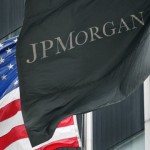 At least five government agencies are probing into JPMorgan’s massive derivatives trading loss, now estimated at $3 billion and counting. But these necessary investigations may be compromised by secrecy, lack of resources and the Obama administration’s close ties with Wall Street. Here’s a summary of active and proposed investigations.
At least five government agencies are probing into JPMorgan’s massive derivatives trading loss, now estimated at $3 billion and counting. But these necessary investigations may be compromised by secrecy, lack of resources and the Obama administration’s close ties with Wall Street. Here’s a summary of active and proposed investigations.
SEC (Securities and Exchange Commission)
The SEC first learned that something might be amiss back in April, when reports emerged that a trader known as the “London whale” was making large bets on credit derivatives that distorted the market. At the time, JPMorgan CEO Jamie Dimon dismissed concerns, calling them a “tempest in a teapot.” On May 10, Dimon announced the $2 billion loss; the next day it was reported that the SEC had opened a preliminary investigation into the company’s accounting practices and public disclosures about the trades. The case is not public, but anonymous sources have specified that no one at JPMorgan had been accused of any wrongdoing.
FBI/Department of Justice
A few days later, the FBI leaked that it too was investigating.
As Erik Gordon, a professor at the University of Michigan explained to Reuters, “The FBI looks for evidence of crimes and goes after people who it alleges are criminals. They want to send people to jail. The SEC pursues all sorts of wrongdoing, imposes fines and is half as scary as the FBI.”
But Peter Boyer and Peter Schweizer, writing in The Daily Beast, say that the Obama administration’s cozy relationship with Wall Street means that even the FBI isn’t all that scary in this case.
“Obama’s Department of Justice has not yet prosecuted a single top executive from a major Wall Street firm,” they point out. “It is not known what possible criminal actions at JP Morgan Chase the Department of Justice is investigating. But, based on the department’s record so far, Jamie Dimon and his team likely have little to fear.”
CFTC (Commodity Futures Trading Commission)
In a rare move, the CFTC publicly announced that they’d also launched an investigation earlier this month, looking at potential violations of the Commodity Exchange Act, including potential manipulation. Commissioner Bart Chilton cautioned against drawing any early conclusions saying in an interview with The Wall Street Journal that “nobody should take the existence of this investigation as [evidence] we’ve uncovered any wrongdoing.”
Senate Banking Committee
The Senate Banking Committee kicked off a round of hearings Tuesday morning with testimony from the heads of the SEC and CFTC. Both complained that they are underfunded and that this hinders their ability to regulate. “Imagine if, all of a sudden, there are eight times the number of teams on the [football] field, but only seven refs,” Gary Gensler, the chairman of the CFTS said. “There would be would be mayhem on the field. The fans would lose confidence.” Another hearing is scheduled for June 6 and will include regulators from the Federal Reserve and Office of the Comptroller of the Currency.
Jamie Dimon is expected to testify before the committee sometime in the near future. But, as Lee Fang points out in The Republic Report, Dimon may be safe here as well. “That’s because the staff director for the Senate Banking Committee is none other than a former JPMorgan lobbyist, Dwight Fettig,” Fang writes.
Independent Investigation?
Economist Simon Johnson says that what we really need is “an independent, detailed, specific investigation to establish who knew what when and what kind of wrongdoing management was engaged in.”
“When two planes almost collide at an airport, there is a full investigation run by the National Transportation Safety Board – an independent federal agency comprised of experts not beholden or reporting to any airline executive,” Johnson says. “We should do the same for ‘near misses’ or significant unexpected and unexplained losses incurred by large firms in the financial sector.”

